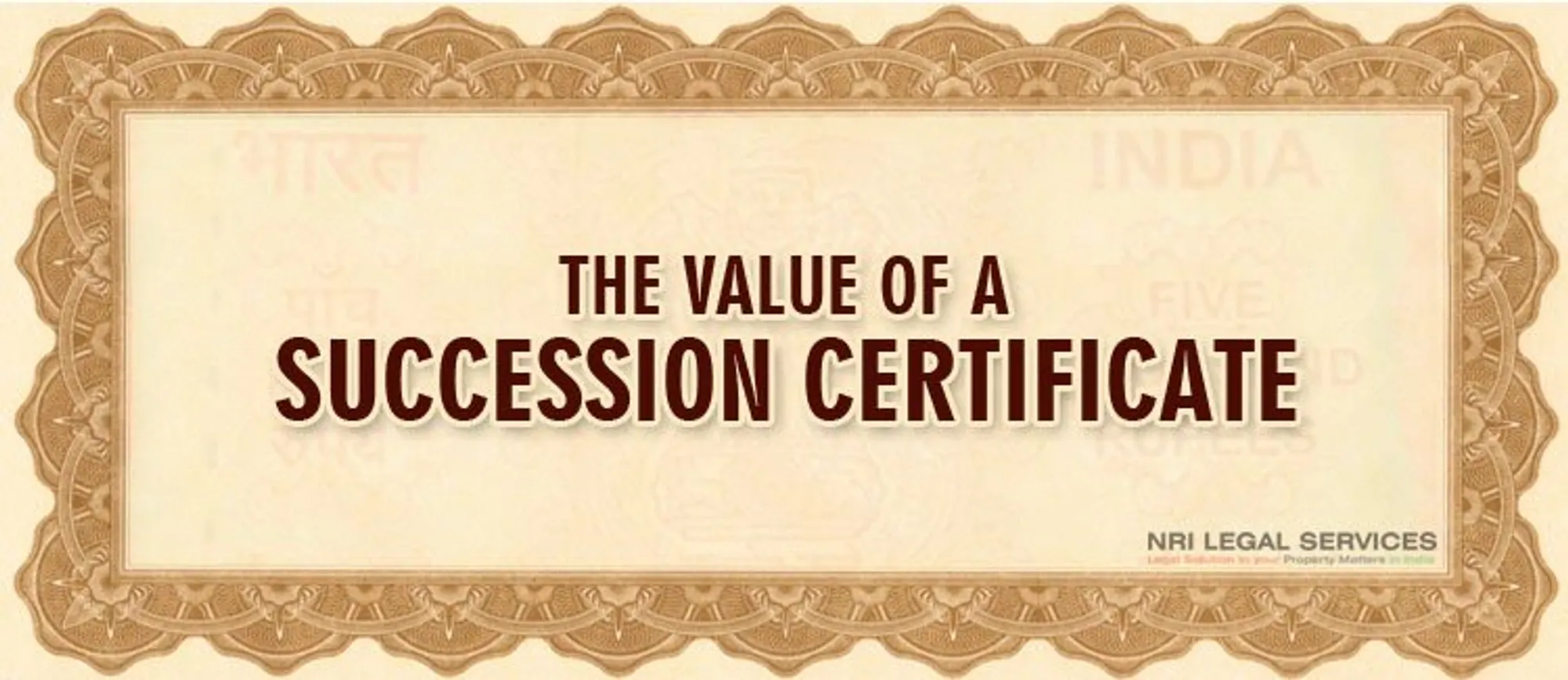Black Money, Benami Property, and Corruption are issues which are plague India, and the present Government is doing everything in its power to improve the country’s position. The steps taken by the government are eminent and effective. These steps might appear uncomfortable to those who have been used to defying the rules of the land, but they seek to build a more transparent, regulated and clean atmosphere in the country. In such an environment it is best to be prepared for all kinds of future situations especially about the matters related to property or various assets of a person.
When it comes to individual’s property or asset, he/she should try to be prepared for future – which is true in the case of NRIs. He/she can prepare a will in advance or appoint a nominee in all financial accounts like fixed deposits, stocks, saving accounts or mutual funds, etc., or can even file nominee for the property ownership.
But what happens when the person dies without preparing a Will? What steps can an heir take to obtain what is rightfully his? These situations raise a need for a solution which can help in claiming everything that belongs to the heir of the deceased.
In such a case where an individual dies without leaving a will (intestate), the legal heirs of the deceased person can apply in the court for the issuance of ‘Succession Certificate.’
Succession Certificate is a certificate granted to the legal heirs of the deceased person by the court so that they can claim the movable or immovable property along with the debts left behind by the deceased.
The issuance of such certificate is governed by The Indian Succession Act 1925. This certificate authorizes the heirs to get assets or securities transferred in their names. Along with the assets, the successor has to take responsibility and liability for clearing any debts or security attached to the property.
To obtain the certificate, the successor has to file a petition in the court. The petition should be filed with the competent jurisdiction where the property of the deceased person is located, or the dead person resided. In the petition the particular petitioner has to specify:-
- His/ her name
- The time, date and place of death
- Relationship with the deceased person
- Names of all heirs of the deceased person and attach the death certificate of the same.
After filing the petition with the court, a notice is issued in the newspaper. The notice specifies the period in which if any person has any objection he/she can do so if there is none the court issues the Succession Certificate to the petitioner.
It commonly takes 6 – 8 months from the date of filing the petition to obtain the Succession Certificate. The High Court and the District Court both have jurisdiction in the case of issuance of the certificate.
To claim what is rightfully yours is not wrong but sometimes it’s difficult to do so. Many times an NRI citizen who knows all the details of the property that in a way belongs to him/her finds himself/herself in a position where due to the lack of Will, claiming the same property becomes difficult.
In such a case if the NRI takes proper advice and consults with the appropriate property expert lawyers before taking a major step, claiming what is rightfully his/hers becomes easy. Prevention is better than cure!

